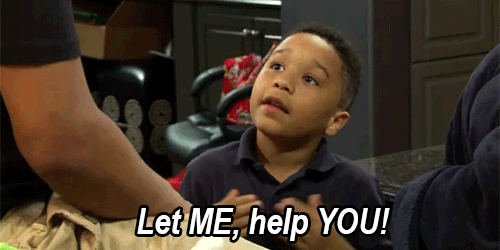Public relations professionals and journalists share an interesting relationship. Many journalists rely on PR professionals in order to do their job efficiently and effectively, while PR pros need the support of journalists in order to tell the story of their brand or business in the media.
However, given our current media landscape in which there are now six PR professionals for every one journalist, it is all too easy for this relationship to become strained as a result of miscommunication or mismatched expectations. Furthermore, as evidenced in a 2019 study by the Pew Research Center which demonstrated the increasing fragmentation of and mistrust in traditional media, today’s journalists increasingly face a number of pressures that could leave public relations professionals toward the bottom of their priority list.
In Facebook terms, “it’s complicated.”

Here are four simple rules every public relations professional should follow that will help them win a journalist’s heart — and ensure their brand or business gets the love in the media that it deserves.
1. Be responsive
The heyday of speed-dating may be over, but time is always of the essence when working with members of the media. In fact, one of the most basic rules for working with journalists is to remember that they are always on deadline.
As a PR professional there is no doubt that you are busy too, but you need to make it a priority to respond to journalists as soon as possible whenever they have questions — or else you risk the chance that they will move on to someone else who will get them the information they need on time.
2. Be a resource
As a PR pro, your greatest role is to be an asset to the journalists you work with. Having an arsenal of information, high-resolution photos, and research about your brand or business at your disposal and being able to offer it to journalists is a key aspect of developing your relationships with them.
You can also be a resource to a journalist by doing some of the heavy lifting for them. Are you pitching a roundup article featuring quirky local restaurants, hoping to get your restaurant client placed front and center? Consider offering suggestions about other eateries that could be on the list.
Finally, another way to be a valuable resource is to demonstrate the ways you will help amplify the media story or segment. If the story is important enough for the reporter to cover, there’s a good chance that your organization’s stakeholders (whether internal or external) will also be very interested in seeing the message.

3. Do your research
Would you go on a date with someone based only on a one-sentence description you read about them in a classified ad? Probably not. Building a relationship with a journalist is the same way; you can’t rely on knowing just their publication and beat in order to secure a truly exceptional story.
Instead, you should take the time to carefully research reporters and play matchmaker with the one who you feel is most qualified to write the story that your brand wants to tell. Prior to pitching, spend 15 minutes each day reading a few articles from your target publications so that you get a clear idea of what types of stories the publication covers — and, just as importantly, who is writing them. Also, use Twitter to your advantage by following your target journalists and staying up-to-date on what they are talking about (and don’t be afraid engage with them, either!).
Finding the time to do research is both a valuable and necessary task. Doing good research gives you the solid background knowledge you need in order to cultivate a successful relationship with a journalist.
4. Be sincere
The most successful relationships between PR pros and reporters aren’t one-story stands. Something that separates truly great PR pros from mediocre ones is that they recognize the importance of building authentic, sincere relationships with members of the media — relationships that, in many instances, can last for years (or even decades).
Developing this sincerity begins every time you write a pitch to a journalist. Avoid efforts to build a connection that are obviously fake or too general, such as “I’ve been reading your stories and wanted to know if you would cover …” Instead, focus on developing specific and sincere customization in your pitches, perhaps by referencing specific stories the reporter has covered in the past and how your story idea connects to their other prior coverage.
Finally, whenever you work with journalists, you should be upfront about what you are asking for. Do you think your story would make a good feature, or are you just looking to get your brand mentioned in a sidebar as part of a larger story? Reporters will appreciate the honesty — the cornerstone upon which all successful relationships are built on.

Ultimately, developing relationships with journalists is just like building a relationship with anyone else — it takes time, effort, and a little patience. However, follow these rules and you’ll be well on your way toward developing long-term relationships that are sure to last for years to come.
About Scooter Media
Scooter Media is a full-service communications agency in Greater Cincinnati specializing in public relations and social media.
If you’re a PR pro looking for more advice, don’t miss our “6 Tips for Making the Most Out of Your PR Placement”.


